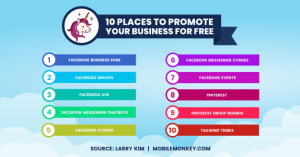With these competencies, marketers can align martech tools with business needs, optimize data flow and enhance customer engagement.

In a previous article, I outlined six core competencies for marketers working with marketing technology, including the first three: generalized system understanding, tool management and architecture vision.
This article focuses on the next two interconnected competencies: capability assessment and tool procurement.
Understanding capability assessment and tool procurement
Once marketers understand how customer data flows through various martech platforms and develop a strategic view of how these platforms work together, they can effectively evaluate the capabilities of different tools and guide companies through the right procurement process.
The capability assessment competency involves:
- Evaluating the value of tools and vendors.
- Identifying those that can solve specific problems.
- Determining how they fit within the overall marketing technology stack and architecture.
The tool procurement competency focuses on building vendor relationships based on business needs and the martech landscape. Marketers must:
- Ensure that contracts include essential features.
- Help procurement teams (or their equivalent) understand why these platforms and features are necessary, how they fit with other tools and where feature overlap is either beneficial or redundant.
Why are these martech competencies important for marketers?
By developing and honing these competencies, marketers can:
- Help define which tools/vendors could solve problems or create opportunities to improve customer communications and marketing processes.
- Work closely with other teams involved in and leading these efforts (i.e., IT and procurement) to ensure the right marketing problem is defined and considered through this assessment phase.
- Be the facilitators of these martech vendor relationships, helping engage the appropriate stakeholders from both vendor and client sides and ensuring the process is kicked off correctly, along with other important stakeholders and owners.
It’s important to note that this knowledge does not require technical expertise. Rather, marketers need a strategic perspective that enables them to comprehend the capabilities of martech platforms and how these capabilities can effectively support the procurement process.
Questions to help marketers get started
- Do the capabilities of martech platforms align with the organization’s objectives? If so, is the procurement team aware of this alignment?
- Is there feature overlap among multiple martech platforms? While some overlap can be beneficial, excessive redundancy may increase costs and complicate procurement processes.
- Do the various platforms offer the necessary capabilities to enhance customer communication and marketing processes, considering the overall martech architecture?
- Are these capabilities and their potential positive impacts clearly defined during the procurement process? Is the procurement team informed about which capabilities are essential versus those that may be considered “nice to have”?
Next steps for marketers
Marketers should participate in discussions about martech platforms’ capabilities to ensure they align with how customer data is collected and used for activation, engagement and conversion.
They are well-positioned to help procurement understand which features should be included in contracts and the benefits they can bring to the company’s marketing processes. This collaboration can also help demonstrate the ROI for these platforms.
The post Why marketers need to master capability assessment and tool procurement appeared first on MarTech.
(4)
Report Post








